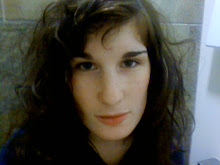Lemme speak a lil' Maso to ya: IF TECHNOLOGY BIRTHS TECHNIQUE AND FROM TECHNIQUES EMERGE NEW STYLES AND NEW STYLES CREATE NEW PERSPECTIVES THAT INTRODUCE NEW RELATIONSHIPS BETWEEN (the) MAN('s world), (the) MACHINE (and it's world) AND THE LARGER UNIVERSE-WORLD AND NEW LANGUAGE REQUIRES A DIFFERENT MEDIUM, IS ART IT'S OWN CONSTANTLY GESTATING/
E X P A N D I N G ///
/BURSTING!/
BLOOMING/
/ ...DYING.../
BIRTHING MOTHER?
According to Aragao, "each avant garde eliminates the preceding avant garde." In assessing the influence of technology on art and culture, it becomes clear that one preceeds the other. photography -> projector -> film/animation. As technologies advance, seemingly the amount we are able to achieve within a given medium expands as well. There are things can be created and understood through film that were not capable of being communicated before film. A painting comes with many more restrictions than a film which is capable of communicating time, space, sounds and visual relationships in real time. In this way, new technologies create "new language" which "imposes another medium and possesses also its own way of communicating."
Arganaraz presents this as a "language of action," which is appropriate when we think of it as a beast which burrows in multitudinous ways, forging its own means of communication even while it utilizes "the traditional behavior [as] necessary" to the creation of its own meaning. This reminds me of Audre Lorde's idea of "the master's tools" not being capable of "[dismantling] the master's house." As a general idea it is very good, but it has a fatal flaw. If certain things work, and could work, then they might work as tools in creating something new. Each tool needs to be evaluated individually. We can use the "traditional behaviors" as we see them fit toward the construction of new forms/meanings/realizations. Thus, though as Mayakofsky was quoted in the text as saying there is "no revolutionary art without revolutionary form," it is possible, I think, for form to reach immense proportions of revolutionary-ness through the use and strategic subversion of old forms.
If "the revolt of concrete poetry is not against language," but against "the non-functionality and formalization" that hold language hostage or "[appropriate] poetry by discourse which converts it into formulas," then old forms have use to us even in our most radical, burrowing-beasts-of-action-style poetics. According to De Campos, poetry has the "true social mission" of "gathering the latent energies of language in order to destroy its petrifying dogmas." This, I feel, is what Kathy Acker was also saying when she declared(in Empire of the Senseless, 1988) literature "that which denounces and slashes apart the repressing machine at the level of the signified." Thus, we use language, we take its old forms and implied values, and use them subversively, infusing our own new radical elements to create a new perspective, as Acker did "plaigarizing" highly canonized works of literature. De Campo states further that if poetry "strays from the traditional linguistic canons to which most of the public are attached, that is does not do so "merely for sport or out of a hunger for originality [...] it does so out of a responsibility" (emphasis mine).
This is what resonates with me: the "social importance of poetry." I want it brought like back in the day when poets were ambassadors and the president's cabinet was made up of teachers and social workers, ie people who have actual visceral, up-close-and-personal experience with the problems plaguing the country and are thus equipped to find amicable solutions, versus the lawyers and bankers and lifetime legislators who are currently making these decisions. I want to work toward a vision/action/reality of a social poetics that is finally able to become understood to the extent that "the poet will cease being the eternal outcast and will come to exercise [THEIR] true function in society no longer in the shadows, but openly." But the question remains: what is the relationship between poetry and status as an outsider? Who are the non-poets? The rulers? Are they the only members of the in-crowd? I must get to know this "we" of sociovaluable poetics much better...
Monday, September 28, 2009
Subscribe to:
Post Comments (Atom)

No comments:
Post a Comment